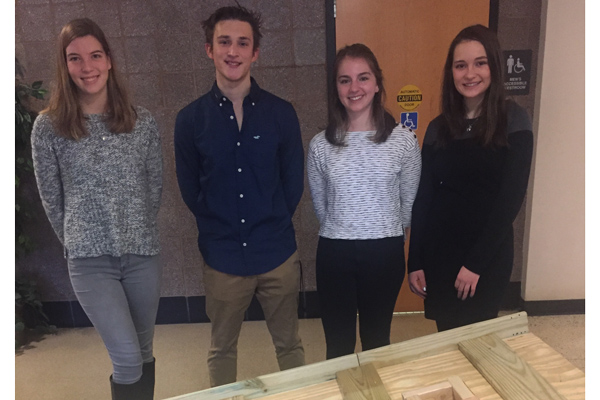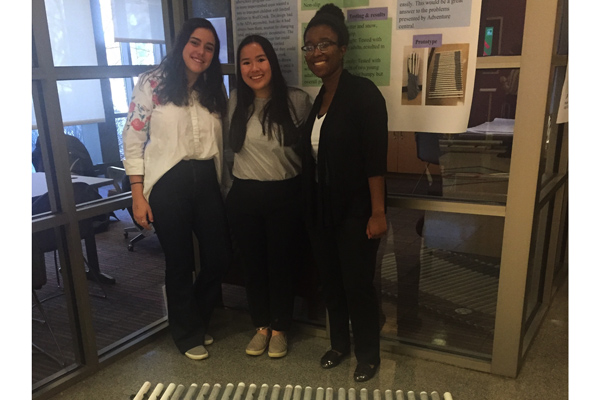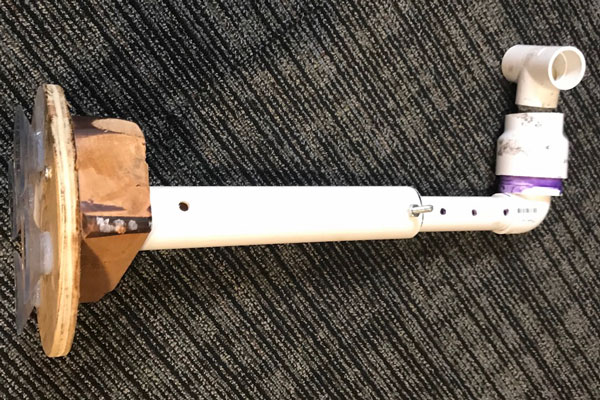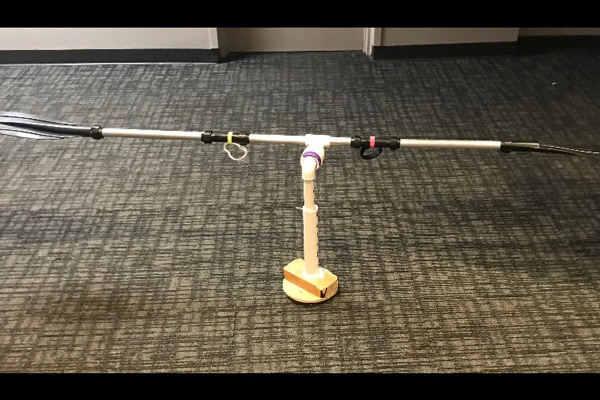Dayton Engineer

How First-Year Engineering Students Are Creating a Better Community
By Adrienne Zandvoort ‘19
In their design course, EGR 103, University of Dayton first-year engineering students have the opportunity to engage with the local Dayton community and work on real-world challenges rather than theoretical problems.
“In addition to learning the design process, students are able to speak the same language with the same skill set,” said Beth Hart, EGR 103 lecturer.
Redesigned from the original EGR 101 course, this class allows students to make a difference by creating a design for a community issue.
During the semester long course, students work in small teams to hone their skills on small design challenges before being presented with a real community issue. Teams are paired with University community partners.
“By engaging with a community partner, they’re empowered to know more about the human aspect of design,” said Kelly Bohrer, director of community relations.
Bohrer notes how students in the class have the freedom to take the assigned challenge in different directions. The project also teaches first-year students how to work within limitations, such as having a $50 budget, and shows them other ways to get involved with the Dayton community.
This is a required course for all future engineers, so students learn about the overall design process, how to communicate technically and how to effectively work within a team.
Teams partnered with Five Rivers Metroparks’ Adventure Central Program, based in Wesleyan Metropark in West Dayton. The Adventure Central Program utilizes the park’s Wolf Creek to offer after school and summer programming to students in first through 12th grade, with an emphasis on nature and science.
The overarching question teams were asked was “How can we make the creek more accessible for students differently abled?” Teams took different approaches to this initial problem by designing and building a variety of products, including portable ramps to allow students using wheelchairs or with mobility issues to better access the creek.
One team took the challenge a step further, by designing a T-stand for a paddle to allow for accessible kayaking once at the creek. Even though their fall EGR 103 course is over, the PaddlePro team, comprised of team members Rose Schaffer, Abby Ward and Alli Shaw, are moving forward and refining their design this semester with sponsorship from Leonardo Enterprises, the School of Engineering’s business incubator.
“One challenge was designing a product that allowed for a natural kayak paddling motion, which was fixed by the unique dual rotation device,” said PaddlePro’s Rose Schaffer. “Another challenge was finding the proper flow for our group. It took a lot of time for us to properly work together, but by the end of the project, we all really complimented each other’s abilities.”
Schaffer continued by saying, “One highlight was being able to create an idea and being able to watch as it came to life. Another was starting out the semester knowing no one and coming together as a group and creating a product that would help people.”
With Bohrer’s help, every faculty member teaching EGR 103 has been connected with a community partner. Partnering with a community organization increases opportunities for faculty and students to account for human and social aspects central to engineered systems.
“This course is a resource of rich projects students can tap into to realize there’s more than just technical, when it comes to engineering,” concluded Hart.



